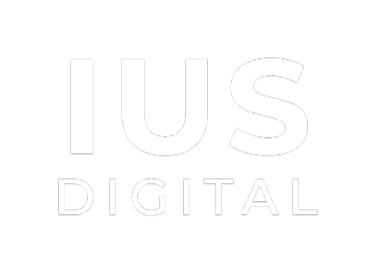Ethical Marketing in a Clickbait World: Where Do We Draw the Line?
In today’s fast-scrolling, attention-starved digital landscape, the competition for eyeballs is fierce. Headlines scream louder. Hooks get sharper. And increasingly, marketing walks a fine line between persuasion and manipulation.
Clickbait still works. That’s the uncomfortable truth.
But here’s the bigger question: Should it? And more importantly, how can brands win attention without compromising their values—or their customers’ trust?
At IUS Digital Solutions, we believe performance doesn’t need to compromise integrity. Let’s explore where ethical marketing fits in this noisy world and how your business can remain honest, human, and high-performing—without crossing the line.
The Clickbait Conundrum: When Engagement Becomes Exploitation
Clickbait often starts with good intentions: "Let’s get people to click!" But the tactics quickly spiral into exaggeration, fear-based language, and empty promises.
We’ve all seen it:
“You Won’t Believe What This Small Business Did to 10x Sales!”
“Martial Arts Studios Are Dying—Unless They Do THIS”
“The Marketing Trick Glass Repair Companies Don’t Want You to Know”
Sure, they grab attention. But what happens next?
Disappointment when the content doesn’t match the hype.
Distrust when users realize they’ve been misled.
Damage to long-term brand equity.
Why It Matters:
Today’s consumers are savvy. They can smell manipulation from a scroll away. And while clickbait may spike short-term traffic, it often leads to:
Higher bounce rates
Lower engagement
Loss of credibility
Ethical marketing isn’t just a moral stance—it’s a smart, sustainable strategy.
The Rise of Ethical Consumer Behavior
Today’s buyers care about more than price—they care about purpose.
This shift toward conscious consumerism and values-driven marketing means your brand story must reflect real-world impact, not just ROI.
What They’re Looking For:
Brands that support Corporate Social Responsibility (CSR)
Transparent communication and ethical product promotion
Socially aware initiatives rooted in social impact marketing
When brands lead with integrity, they don’t just attract attention—they earn allegiance.
Where Do We Draw the Line?
Ethical marketing doesn’t mean dull, passive, or unconvincing. It means creating persuasive content that still honors truth, transparency, and respect.
Red Flags to Avoid:
Overpromising (e.g., “Guaranteed overnight success!”)
Exaggerated urgency (e.g., “Act now or your business will fail!”)
Manipulative hooks that prey on fear or shame
Green Lights to Embrace:
Clear value propositions (What will the reader actually gain?)
Data-backed claims (Let proof do the heavy lifting)
Human-centered storytelling that informs and connects
The goal? Get the click and deliver the value promised.
5 Ways to Stay Honest and High-Performing
Here are practical ways your brand can strike the right balance:
1. Write Headlines That Tease, Not Trick
Craft curiosity-driven headlines without deceiving the reader. A great headline should spark interest and reflect the content accurately.
Instead of:
“Digital Marketing Secrets That Will Explode Your Revenue Overnight”
Try:
“How Local Businesses Are Using Data-Driven Marketing to Scale Sustainably”
2. Prioritize Value Over Virality
Yes, we want reach. But the right audience is better than a large one. Focus on solving real pain points, not just chasing clicks.
3. Use Emotion Responsibly
Emotion belongs in marketing—it’s how we connect. But choose inspiration, empathy, and authenticity over fear, shame, or pressure.
4. Be Transparent About Intent
If a piece is sponsored, say so. If there's an offer, outline what’s involved. Honesty builds trust—and trust builds conversions.
5. Build Content That Pays Off the Click
Whether it’s a blog, video, or ad, the content should follow through on the promise made. No fluff. No bait-and-switch. Just real, helpful insights.
How to Create High-Performing, Honest Content
Ethical doesn’t mean boring. Here's how you can maintain impact without misinformation.
Craft Honest, Impactful Advertising
Use emotion—yes. But use advertisements to inspire rather than manipulate. Tell real stories. Use verifiable data. Share your setbacks as well as your wins. That’s authenticity.
Lean Into Purpose-Driven Branding
Let your campaigns reflect a higher mission. Showcase efforts like community engagement, environmental initiatives, or social justice advocacy. Show you’re not just selling, you’re serving.
Provide Value First, CTA Second
Instead of shouting “Buy Now!” try “Here’s a tool that helped a small business cut ad costs by 30%.” Then invite them to learn more. Give before asking.
Use Ethical SEO Practices
Avoid keyword stuffing or misleading meta descriptions. Instead, focus on local SEO, user intent, site accessibility, and responsible branding strategy that aligns with long-term engagement.
Where Do We Go From Here?
In a world where every scroll is a competition for attention, ethical marketing is your long game. Not only does it future-proof your brand—it builds genuine relationships with people who share your values.
At IUS Digital Solutions, we help brands craft authentic brand messaging rooted in data, empathy, and performance. We believe marketing should inform, inspire, and impact—not mislead.
Explore our full range of digital marketing services or contact us to get started.
Final Thoughts
The best marketing doesn’t trick—it tells the truth in a compelling way. By aligning your brand with transparency, impact, and purpose, you can still win the click—and keep the customer.


